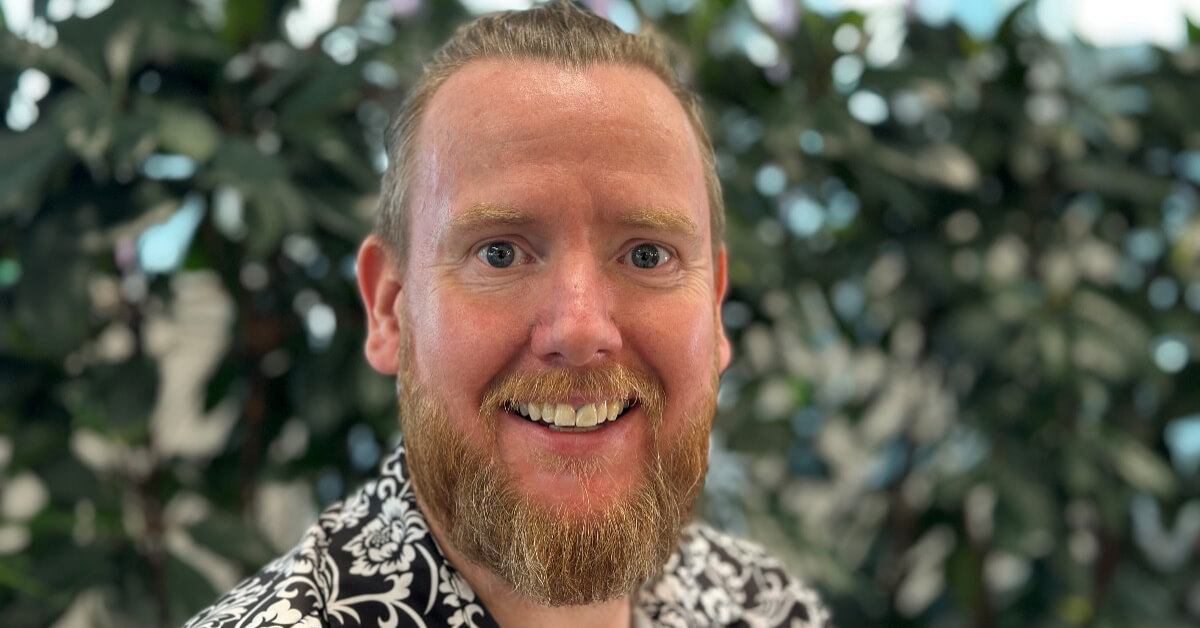We caught up with Curtis to find out more about his 26-year journey with the business … and counting.

You joined the business as an apprentice, what has kept you here and how have you progressed?
This is a bit of a strange one. I applied for the role whilst still doing my A levels. I was interested because of emerging technology and of course ‘the internet’. I liked the structure of learning and development. My manager was very supportive, and I was able to attend many of the wider run apprenticeship learning programmes. I got the best of everything … a supportive line manager, lots of variation and an opportunity to meet with other apprentices. My manager worked with an external provider, and I was able to obtain certification with IBM as a Mainframe engineer.
My passion for learning has been well fed, the variation of work and the people I work with have kept me here since 1996. I progressed as a specialist and then onward into management as I discovered my passion for people.
What projects are you currently working on with your team and how will this help us connect for good?
We are part of a highly skilled multi-disciplinary team, we design, build, and operate a software defined platform built with many different systems, tools, and technologies. We are working with our Open-Source vendor to develop a Private Cloud platform that’s modern, fit for purpose and scalable for the future.
As a key strategic component of BT Group’s converged all IP network; the Network Cloud Platform provides the high scale virtualised Compute, Storage and Connectivity services that underpin many of our critical network services, including our Mobile Core. We are the beating heart of our future network.
Having worked across our different business units what are some of the key things you have learnt?
Through the twenty-six years I’ve worked for the business I’ve moved in and out of various business units and the common theme has been that each time it has felt like I have worked for a different company altogether. Over the last ten years it’s been great to see alignment between units and less competing and more complimenting. I’ve broadly worked within networks services, most of my career as this has in most cases been the central ownership of our compute and network estate. Moving around with the company has taught me that it is key to maintain relationships, I’ve seen projects go full circle and regroup with people from the past. Relationships help where you need support and negotiations are difficult, having history and a mutual understanding helps accelerate and outcome.
Outside of your specific job role are you involved in any other areas of the business?
Within the company I’m also an ally of the internal Pride Network. Before the launch of advocacy and allyship programmes I had started to look at my own situation and started thinking about what happens to others that maybe hadn’t had an easier start as me.
I had become really interested in behaviour and neural diversity and it all started to piece together (often being very entangled). I built a passion for advocating for others and providing a listening ear for others. I talked openly about my own circumstances and exposing where I have identified problems that I’ve caused myself.
This led to me being very open with my own feelings and accepting the opinions of others and understanding the impact of misunderstanding/ignorance (which is often driven by embarrassment). It’s helped with dealing with people both in and outside of work and ensuring people get the right level of support. It also ultimately led my husband and I being able to adopt our son.
I’m also a local H&S representative for mental health to ensure people within our unit have the best possible support and this fits hand in hand with my responsibility towards my colleagues within the support networks.
Diversity and Inclusion is extremely important to the business. How do you take it into consideration as a people manager?
Diversity and Inclusion is so important in society and it’s our opportunity to amplify the importance within the business. It’s key that everybody is treated fairly. Ideas, presence, and contributions are valued and taken seriously. Research into company culture has shown that a diverse and inclusive workplace increases innovation, growth, and retention.
Outside of work I’m studying to be a behaviourist and so many times conflict is driven through misunderstanding and ignorance. We continue to positively educate our workforce and I feel privileged to work in a company where diversity and inclusion is so high on the agenda.
How do you create a culture of passion, curiosity and learning when it comes to your team?
Being passionate is all about loving your own product! Is what you make what your love? If we care about what we do, we’ll care about what we produce. There’s also a few key thought patterns as part of this: -
Empathy - Think about others. Our customers, our colleagues, our business
Trust - Building a relationship so that we can ask questions without triggering defensive behaviour. This opens the gateway to curiosity.
Transparency - The whole story. For our teams to make the right decisions they need to know as much information as possible. Even when that’s challenging.
Knowledge – What skills and knowledge do we need to be the best? This is everybody’s responsibility and key for line managers to support the space for our team to grow.

